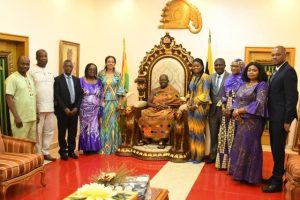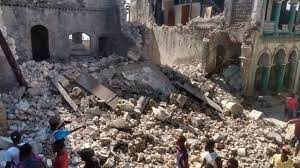An assessment of the economic viability of the Abidjan Lagos Corridor Highway Development Project has identified Ghana’s section of the planned road infrastructure as the most economically viable route under the project.
The country’s 520 kilometres stretch of the project, which spans Yamoransa-Aboansa and Aburi-Afineya, emerged with an Economic Internal Rate of Return (EIRR) of 17 per cent which was higher than the average of 15 per cent for the entire project.
Economic Rate of Returns measures the profitability of investment of a project and usually, the World Bank and other development partners give a limit of at least 12 per cent.
This means that if the rate of return is around 12 per cent, then the private investor knows that when they invest a dollar in the project, they are going to get a return of more than 12 folds over a period of time.
These figures were shared at the recently concluded 16th Steering Committee Meeting on the Abidjan-Lagos Corridor Highway Development Programme which was held in Abuja, Nigeria.
The Steering Committee comprises Ministers in charge of Roads and/or Infrastructure, established by Heads of State of the Abidjan-Lagos Corridor member countries of Benin, Cote d’Ivoire, Ghana, Nigeria and Togo.
The objective of the meeting was to enable the Steering Committee to review the implementation progress of the project which involves the construction of a three-lane dual carriage highway, implementation of transport facilitation measures to improve intra-regional trade and a comprehensive corridor economic development plan.
Abidjan Lagos Highway Development Project
The Abidjan-Lagos Corridor covers a total distance of 1,028km and connects some of the largest and economically dynamic cities in Africa namely Lagos, Accra, Cotonou, Lome and Abidjan.
It also covers a large proportion of the population of West Africa and links very vibrant sea ports, serving all the landlocked countries in the region being Burkina Faso, Mali and Niger.
In order to facilitate transportation on this corridor which carries more than 75 per cent of trade volume in West Africa, several interventions from ECOWAS, development partners and countries along the corridor have been undertaken over the years.
These include road infrastructure improvement, border posts restructuring and soft transport facilitation interventions to improve the free flow of persons, trade and transport.
It is for this reason the head of states of these five West African Countries came together to construct a six lane highway on the corridor.
The $15.6 billion project is expected to be financed through a Public, Private Partnership (PPA) agreement.
Impact of COVID-19
The Minister of Roads and Highways, Kwasi Amoako Atta, speaking at the committee meeting, said the COVID–19 pandemic had affected the pace of the project.
“We should have completed this feasibility and detailed design studies by August 2021 and we should have been discussing the project implementation phase.
“But due to the obvious delays caused by the pandemic, we are almost one year behind schedule with its attendant cost implications for us to bear,” he stated.
Technical sessions
He said he had been updated on all the many technical sessions on the tolling systems, updated feasibility studies, Ghana’s tunnel design, claims negotiations, project communication and visibility plan, young engineers training and many other issues discussed at different meetings by the experts, ECOWAS as a body, and the consultants.
He commended ECOWAS and the technical team for the good job they have been doing to surmount all these sticky areas and ensure that the project was successful.
“I would want to use this platform to urge ECOWAS to speed up the negotiation with the consultants to reach amicable settlement. We cannot afford to lose any more time at this study phase of the project.







